Blog


New Canadian Genealogy Vital Records & 1851 Census Online
Featured this week are new records for Canada, including the 1851 Canada Census, and BMD for Saskatchewan and Manitoba. Other records include new Irish collections, updated New Zealand birth, marriage, and death collections, new marriage record collections for England, and the launch of the New York State Death Index.

Canadian Genealogy: New Online
Ancestry.com has new collections for Saskatchewan, Canada available online now. These collections include Cemetery Transcripts (1850-1994) and Catholic Baptisms, Marriages, and Burials (1867-1932). These collections are both also available on MyHeritage.

Claire Banton, Library and Archives Canada (LAC)
Also at Ancestry this week are new records for Manitoba, Canada. You can search Baptisms, Marriages, and Burials (1834-1959), and keep in mind that some of the records in this collection pre-date Manitoba’s creation as a province, and, as a result, are from locations that do not exist in present-day Manitoba. Some records may also appear in French. You can also explore Manitoba Census Indexes (1832-1856 & 1870).
The 1851 Canada Census is available now at Findmypast. It contains over 1.3 million records and images for Canada West (Ontario) and Canada East (Quebec), New Brunswick, and Nova Scotia. This collection is also available at MyHeritage, as well as at the Library and Archives Canada (though their search tools may not be quite as robust).
For fabulous quick tips on Canadian research, take a listen to Lisa’s interview with Claire Banton of the Library and Archives Canada (LAC). Available free on the Genealogy Gems Podcast episode #199.
Irish Military & Bank Records
County Cork. A new database of Irish soldiers is now available online: Deserters, acts of heroism, and IRA murders unearthed. According to the site: “The details of some 2,187 people – soldiers and their families – recorded mainly in the registers of Ballincollig Garrison Chapel have been recovered using the registers of baptisms, marriages and burials between 1810 and 1922 now in the safe custody of the RCB Library, and further research using a variety of additional resources have further unlocked their hidden stories.”
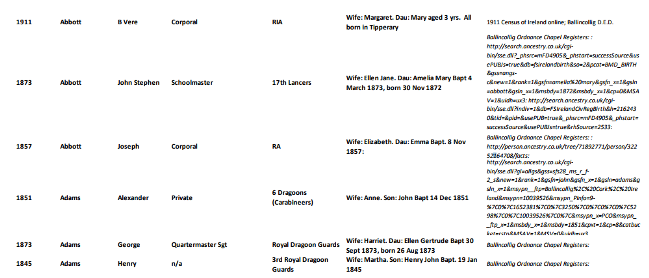
Snippet from a detailed spreadsheet containing information on the 2,187 soldiers and their families recorded in the registers of Ballincollig Garrison Chapel.
Newstalk. The Central Bank of Ireland opens its archives up to the public, including an online catalog. According to a recent article: “The bank says the archives can now be used for public research purposes for the first time. They include a range of materials created and acquired by the bank – such as objects, documents, and ledgers dating from 1786 to 1986.” All materials are open to the public in a dedicated research room, and an online catalog is available to determine what materials may be of interest.
Updated New Zealand Collections
Thousands of records have been added to Findmypast’s collection for New Zealand. Updates include 19,000 added to the Birth Index 1848 onward, 10,000 records added to the Marriage Index 1854 onward, and over 32,000 records added to the Death Index 1848 onward.
British Marriage Records: New Online
It’s wedding bells for Britain! Findmypast has a new collection of Oxfordshire Marriage Bonds 1634-1849 with over 46,000 records. You can also browse the new British Marriage Licenses 1446-1837 collection, where 15 English counties are represented including London, Lancashire, Suffolk, Exeter, Lincoln, Yorkshire, and more. Lastly, explore the thousands of Fleet marriages in Findmypast’s new collection of England Clandestine Marriages 1667-1754 of over 42,000 records.
United States: Newspapers & More
New York. Ancestry.com has just launched a collection of New York State death indexes 1880 to 1956. Ancestry says that “the collection includes more than 5 million names of people who died in New York State.” This death index is available online elsewhere for free, but Ancestry subscribers will appreciate the convenience of searching it on the site.
Colorado. Colorado Virtual Library: “The Colorado Historic Newspapers Collection recently added four new titles; the Brush Lariat (1884-1885), the Morgan County Republican (1912-1920), the Louisville Times (1942-2007), and the Whitehorn News (1897-1907). These four new titles, added by a longtime CHNC partner and two new partners, join 205 titles of historic Colorado newspapers.”
Florida. The Greater North Miami Historical Society had a collection of historical images. Its historical collection dates back to the 1930s and includes over 4,000 negatives, photographs, and other items. *Only a fraction of the material has been put online and the project continues.
Newspapers (Seattle, WA, Boston, MA, & Washington D.C.)
Accessible Archives has announced the completion of additional titles in its African American Newspapers and Women’s Suffrage collections. The five newspapers are now fully imaged and searchable. These tiles range from mid-19th century to early 20th century.
Disclosure: This post contains affiliate links and Genealogy Gems will be compensated if you make a purchase after clicking on these links (at no additional cost to you). Thank you for supporting Genealogy Gems!
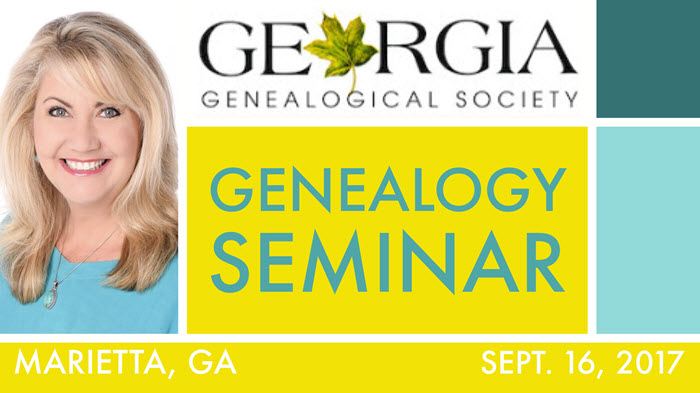
Georgia Genealogical Society Seminar
The Georgia Genealogical Society is hosting an all-day seminar on September 16, 2017 in Marietta, Georgia. I’m the invited speaker–and you’re invited, too! Come learn cutting-edge skills and tools you can start using in your family history research immediately. Register online until September 12, 2017. You can book me for your genealogy event here.

If you can make it to Marietta, Georgia on Saturday, September 16, I hope you’ll join me for an all-day seminar sponsored by the Georgia Genealogical Society. The event organizers have chosen a well-rounded set of classes I’m excited to teach! You’ll get cutting-edge tips on online search strategies, an in-depth newspaper research class, a unique and fun approach to working a “genealogical cold case,” and inspiring, attention-getting ideas to share your family history discoveries with your relatives.
Georgia Genealogical Society Seminar Details
What: All-Day Seminar with Lisa Louise Cooke
Where: First Presbyterian Church, 189 Church St., Marietta, GA
When: Saturday, September 16, 2017, 9:45 am – 4:15 pm (doors open at 9:15 am for registration)
Hosted by: Georgia Genealogical Society; co-sponsored by Cobb County Genealogical Society
Registration: Register online via PayPal by midnight on Tuesday, September 12, 2017, to get the regular event price and the class handouts.
And boy oh boy are we going to dig into genealogy!:
10:15 am: Google Books: The Tool You Should Use Every Day! Over 25 million digitized and searchable free books are at your fingertips with Google Books. Learn how to make the most of this goldmine chock full of historical data. (This is a brand new class in 2017 and was a BIG hit at Rootstech,)
11:30: Get the Scoop on your Ancestors with Newspapers. Yearning to “read all about it?” Newspapers are a fantastic source of research leads, information and historical context for your family history. Learn the specialized approach that is required to achieve success in locating the news on your ancestors. Includes 3 Cool Tech Tools that will get you started.
(12:30-2:00 pm: Lunch is on your own)
2:00 pm: How to Reopen and Work a Genealogy Cold Case. Become a genealogical detective in this vital session. You’ll learn to track ancestors like a criminal cold case detective, sniffing out holes in your research and getting missing information on the record with cutting edge technology.
3:15 pm: Inspiring Ways to Capture the Interest of Non-Genealogists. If you are researching your family tree but haven’t shared it with your family in a way that sparks their interest, then you are only experiencing half of the joy of genealogy! And if your descendants don’t grasp the importance of their heritage, your hard work may tragically find it’s way to the city dump when you are gone. Don’t just collect your family history and store it away in binders and files! Learn how creative displays and crafts can capture the imagination of your non-historian friends and relatives, while honoring your ancestors. These projects are guaranteed to inspire your family to ask you to tell them more about the family tree!
Click here for more about the event and to register.
4 More Ways to Learn New Genealogy Skills
If you can’t be in Marietta (darn!) on September 16, check out these free options for learning with me and the rest of my team here at Genealogy Gems:
-
- Subscribe to my free weekly e-newsletter. You’ll get my free Google research e-book as a thank you gift. Simply enter your email address into this box, and I’ll deliver news, how-tos and stories from my blog, including my popular weekly update of new genealogy records online.
- Listen to the free Genealogy Gems podcast. My flagship audio show has been delivering in-depth stories, research strategies, tech tips and more for more than 10 years–with more than 2 million times worldwide. Why not listen for yourself?
- Subscribe to my YouTube channel. Watch, learn and be inspired with the many genealogy how-to videos I’ve shared on my YouTube channel.
Thanks for sharing this event invitation with your friends. I hope to meet you in Marietta, on social media or as a new listener or email subscriber!
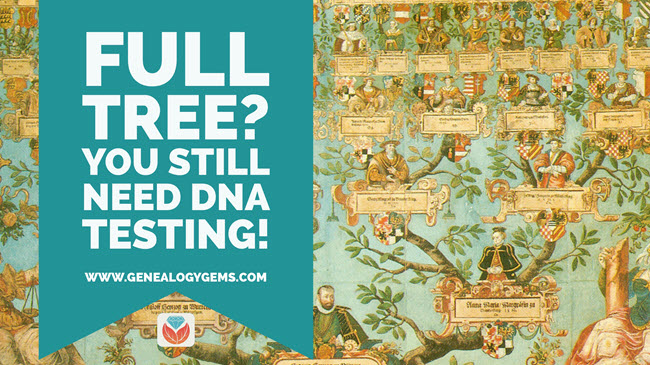
Why Do DNA Testing for Family History If You Already “Know” Your Tree
“I don’t need DNA testing for family history: my pedigree is full!” I still hear this occasionally. But here’s why everyone doing their family history should take at least one DNA test.

Teenagers (including my own) are always talking about the things that “everyone else has,” a phenomenon that Malcolm Gladwell describes as the “tipping point.” He says that the tipping point is “the moment of critical mass, the threshold, the boiling point” for change in human behavior. For my kids, it’s everything from the point at which a party becomes fun to doing everything humanly possible to procure a fidget-spinner (if you don’t know what that is, ask the nearest 11-year-old).
In DNA testing for family history in the United States, that tipping point is now. We have reached the point where most genealogists at least have the passing notion that genetics can be useful in genealogy. Most genealogists (I would guess 85%) who attend the lectures I give have already had at least one DNA test completed.
Let’s stop for just one minute and recognize how incredible that is! Not too long ago I was still trying to convince people that this was a good idea and that you didn’t have to dig up your ancestors to do it. But now we have scores of genealogists who have not only tested themselves, but have convinced half their family to test as well!
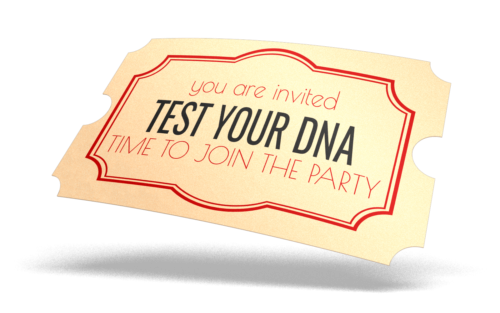 “I don’t need DNA testing for family history.” Really?
“I don’t need DNA testing for family history.” Really?
This got me thinking though: who are those people who haven’t tested? And why not? One category of people sans DNA test is those who have full pedigree charts. I have heard many of them say that they don’t see the need to do DNA testing since they have most of their lines “way back.”
To those with the blessing of ancestors who kept better records than mine, I am offering four reasons why you should RSVP anyway to your invitation to DNA test.
1. To create and preserve a unique record. First and foremost, your DNA is a record. Just as you have obtained birth certificates and marriage licenses for your ancestors, your DNA is a unique record. It does represent you and your family in a way that no other record can. It is a document of your genetic history and should be preserved. Further, while you may doubt the ability of your DNA to shed light on your current genealogy, don’t underestimate the contribution it might make in the future.
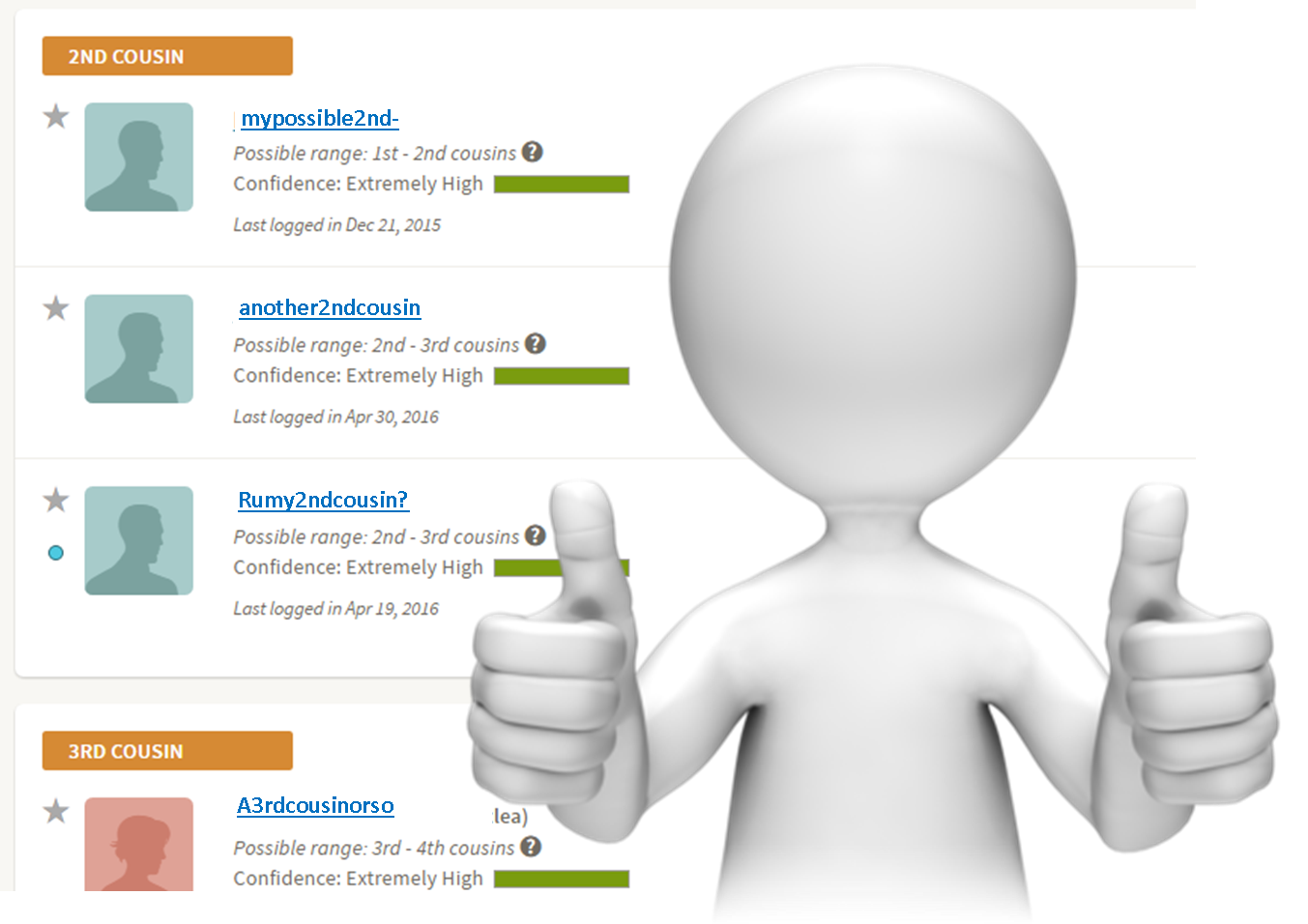 2. Because you have second cousins. And third cousins, and fourth cousins, etc. Having your DNA tested means you can see a biological connection between you and other relatives that have had tested. For many, the idea of meeting or forming relationships with distant cousins is not appealing. But even if you have no intention of attending DNA family reunions or even in corresponding with these relatives, there is something reassuring about seeing them there on your match list. There is a certain thrill that comes with recognizing the connection between you and someone else. A connection that may not add any new names to your tree, but it helps you feel a deeper connection to your ancestor, and a greater appreciation for your biology.
2. Because you have second cousins. And third cousins, and fourth cousins, etc. Having your DNA tested means you can see a biological connection between you and other relatives that have had tested. For many, the idea of meeting or forming relationships with distant cousins is not appealing. But even if you have no intention of attending DNA family reunions or even in corresponding with these relatives, there is something reassuring about seeing them there on your match list. There is a certain thrill that comes with recognizing the connection between you and someone else. A connection that may not add any new names to your tree, but it helps you feel a deeper connection to your ancestor, and a greater appreciation for your biology.
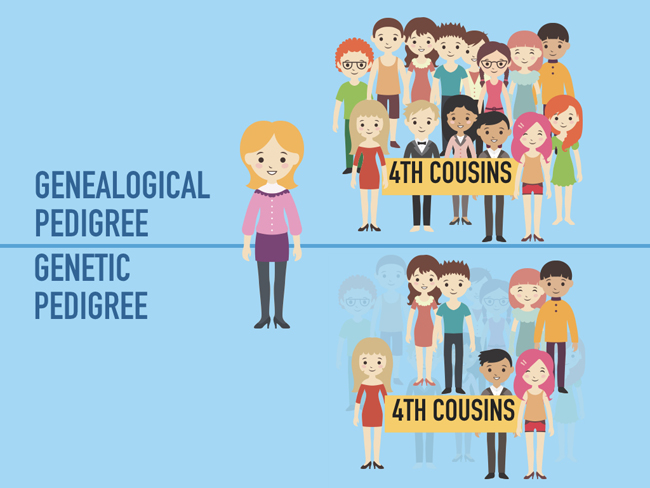 3. To verify what’s on your tree. Which brings me to the next point. Seeing these cousins on your list can actually help verify the genealogy you have already collected and documented. It helps to reassure you that you have made the right steps along the way, and may help you gain additional resources about your relative through their descendants that you find on your match list. Resources that can help turn that ancestor from a name on a chart to a story and a life worth preserving.
3. To verify what’s on your tree. Which brings me to the next point. Seeing these cousins on your list can actually help verify the genealogy you have already collected and documented. It helps to reassure you that you have made the right steps along the way, and may help you gain additional resources about your relative through their descendants that you find on your match list. Resources that can help turn that ancestor from a name on a chart to a story and a life worth preserving.
Verifying what’s on your tree brings with it a certain amount of uncertainty, it’s true. In fact, in the process of verifying your tree, you may discover new genetic truths about it. You may find that some who you thought biologically related actually aren’t, and you may discover new biological relatives you didn’t know about. Not everyone is prepared for this, especially if they’re pretty sure they know everything about their ancestry. But increasingly, I’m finding, people do want to know about a second cousin who was adopted out of the family or their grandpa’s secret half-sibling–and these connections may never emerge unless you participate in DNA testing for family history.
Remember, your genealogical pedigree is not the same as your genetic pedigree! Click here to read about different things you may learn from each one.
4. To help someone else build their tree. The last reason to go ahead and have your DNA tested is to help others. If you have been lucky enough to fill in most of the blanks on your tree, you can help others do the same by simply having your DNA tested. Your DNA provides a link to your tree that might be just what someone needs to overcome a brick wall in their family history.
So, if you have been hanging out on the outskirts of DNA testing because you feel like your tree is full enough without it, remember to RSVP to your invitation to be DNA tested, and join the party!
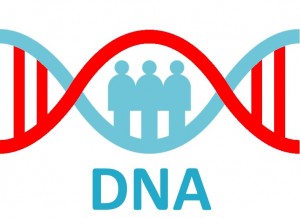 Click here to get started with DNA testing for family history. You’ll learn who to test, why to test, what tests you can take and where to purchase them. You can watch a short video about getting started and see additional resources that will help you get the most out of your testing experience all along the way.
Click here to get started with DNA testing for family history. You’ll learn who to test, why to test, what tests you can take and where to purchase them. You can watch a short video about getting started and see additional resources that will help you get the most out of your testing experience all along the way.




